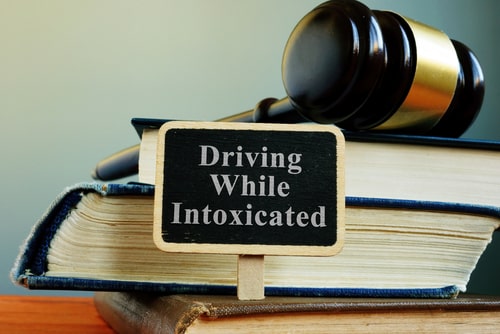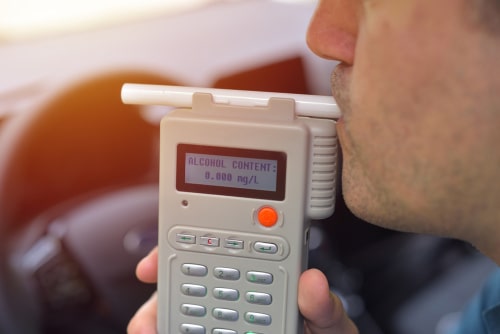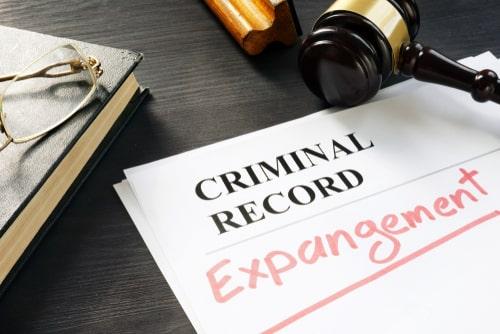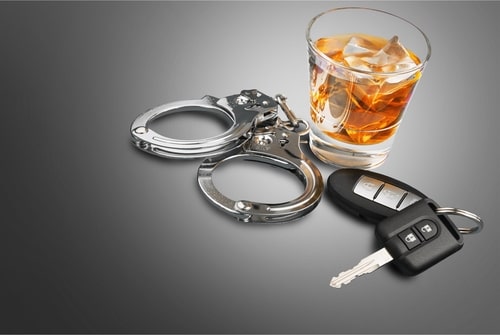2591 Dallas Parkway, Suite 207A, Frisco, TX 75034
Free Consultations
469-333-3333
 |
DO I HAVE TO GO TO TRIAL IN TEXAS? |
Recent Blog Posts
What Happens if You Are Caught Selling Marijuana in Texas?
 When it comes to the legality of marijuana and cannabis products, state laws vary wildly. In Texas, the use, sale, or cultivation of marijuana is illegal. Medical marijuana containing low levels of THC is available for certain individuals diagnosed with medical conditions like epilepsy. However, medical marijuana users must receive a prescription from a physician and get the marijuana product from a licensed dispensary.
When it comes to the legality of marijuana and cannabis products, state laws vary wildly. In Texas, the use, sale, or cultivation of marijuana is illegal. Medical marijuana containing low levels of THC is available for certain individuals diagnosed with medical conditions like epilepsy. However, medical marijuana users must receive a prescription from a physician and get the marijuana product from a licensed dispensary.
Regular Texans are prohibited from selling or otherwise distributing marijuana flower or THC products like edibles. If you or a loved one were charged with marijuana distribution, seek advice from a drug crimes defense lawyer right away.
Collin County Marijuana Distribution Charges
Selling even a small amount of marijuana flower, edibles, or other cannabis products can lead to criminal charges in Texas. The severity of the charges depends on the amount of cannabis allegedly sold.
Four Police Mistakes that Can Benefit Your Frisco DWI Case
 Police officers have a substantial amount of authority in the United States. However, police authority is not unlimited. Officers must adhere to certain rules and procedures during arrests and investigations. When police make procedural errors or other mistakes, it can have a significant impact on the outcome of a case. If you were arrested for driving while intoxicated, it is important to understand how improper police actions can improve your chances of avoiding conviction.
Police officers have a substantial amount of authority in the United States. However, police authority is not unlimited. Officers must adhere to certain rules and procedures during arrests and investigations. When police make procedural errors or other mistakes, it can have a significant impact on the outcome of a case. If you were arrested for driving while intoxicated, it is important to understand how improper police actions can improve your chances of avoiding conviction.
Lack of Justification for Traffic Stop
Individuals in the United States have a right to a certain level of privacy. Police and other government officials cannot detain people without justification. To pull a driver over for a traffic stop, police must have a reasonable suspicion that the driver committed a traffic violation or other crime. If a DWI arrest follows a traffic stop for which there was no justification, the charges could be dismissed.
What to Know About Intoxication Assault Charges in Frisco
 Driving while intoxicated is a criminal offense in Texas. If convicted of DWI, an individual faces major consequences, including jail time. If an individual causes an accident in which someone is injured while under the influence, he or she can face charges for intoxication assault. DWI involving bodily injury or intoxication assault may involve drunk driving, drugged driving, or intoxicated operation of a boat or airplane. DWI resulting in serious bodily injury is a felony offense in Texas. If you or a loved one were charged with intoxication assault, speak to a criminal defense lawyer for help right away.
Driving while intoxicated is a criminal offense in Texas. If convicted of DWI, an individual faces major consequences, including jail time. If an individual causes an accident in which someone is injured while under the influence, he or she can face charges for intoxication assault. DWI involving bodily injury or intoxication assault may involve drunk driving, drugged driving, or intoxicated operation of a boat or airplane. DWI resulting in serious bodily injury is a felony offense in Texas. If you or a loved one were charged with intoxication assault, speak to a criminal defense lawyer for help right away.
Drunk Driving That Results in Serious Bodily Injury
Alcohol, drugs, or even prescription medication can affect a person’s ability to drive safely. Because of this, states have passed legislation prohibiting intoxicated driving. DWI is punishable by three to 180 days’ incarceration, probation, community service, and steep fines for a first-time offense in Texas. However, if an intoxicated driver causes a crash in which someone is seriously hurt, the penalties are much more severe.
Teens and Young Adults Can Face Criminal Charges for Purchasing or Consuming Alcohol
 As the school season ends and summer break begins, many high school and college-aged students are faced with a difficult decision: Do they wait until they are of legal age to drink, or do they drink alcohol before age 21?
As the school season ends and summer break begins, many high school and college-aged students are faced with a difficult decision: Do they wait until they are of legal age to drink, or do they drink alcohol before age 21?
Many young people find themselves at summer parties or events where alcohol is served to underage individuals. They may even have an older friend or family member who is willing to purchase alcohol for them. The temptation to drink before it is legal is something many people have experienced; however, the consequences of underage drinking can have profound consequences.
Minor in Possession of Alcohol
In the majority of cases, individuals under age 21 may not possess or consume alcohol. If a minor is caught in possession of alcohol in violation of Texas law, he or she can be charged with a Class C misdemeanor. Texas penalties for minors charged with alcohol possession are not focused on punishment but instead helping the minor avoid reoffending in the future. Alcohol possession is punishable by a maximum fine of $500 and up to 12 hours of community service. If the minor has a driver’s license or learner’s permit, his or her license may be suspended for up to 30 days. Often, minors charged with alcohol-related offenses are required to participate in an alcohol education course.
3 Things Collin County CDL Holders Should Know About DWI Charges
 Truck drivers, bus drivers, and other commercial drivers provide invaluable services to Texas communities. If you have a commercial driver’s license, you probably know that CDL holders are subject to special regulations and requirements. Commercial drivers are held to very high standards under Texas law. Violating Texas law by driving while intoxicated (DWI) can lead to the suspension or revocation commercial driver’s license. Losing your license is especially devastating when you need your driver’s license to make a living. It is imperative that CDL holders understand their legal options after being accused of drunk driving.
Truck drivers, bus drivers, and other commercial drivers provide invaluable services to Texas communities. If you have a commercial driver’s license, you probably know that CDL holders are subject to special regulations and requirements. Commercial drivers are held to very high standards under Texas law. Violating Texas law by driving while intoxicated (DWI) can lead to the suspension or revocation commercial driver’s license. Losing your license is especially devastating when you need your driver’s license to make a living. It is imperative that CDL holders understand their legal options after being accused of drunk driving.
Legal Limit for Commercial Drivers in Texas
For non-CDL holders, the legal blood alcohol concentration (BAC) in Texas is 0.08 percent. However, the legal limit is only 0.04 percent for CDL holders. Many commercial drivers are shocked when they realize just how little alcohol it takes to push their BAC beyond the legal limit. For an average-sized adult male, it only takes two drinks to reach 0.04 percent BAC. Women who weigh less than 120 pounds can have a BAC over 0.04 percent from consuming a single alcoholic drink. CDL holders who have a few drinks and then drive may find themselves facing criminal charges for DWI.
How Can I Clear My Criminal Record in Texas?
 Having a criminal record can affect nearly every aspect of a person's life. Finding a job or apartment may be difficult or nearly impossible with criminal charges on your record. It can also be embarrassing for details of an arrest or other legal matter to be publicly available for friends, family, or neighbors to see.
Having a criminal record can affect nearly every aspect of a person's life. Finding a job or apartment may be difficult or nearly impossible with criminal charges on your record. It can also be embarrassing for details of an arrest or other legal matter to be publicly available for friends, family, or neighbors to see.
If you have a criminal record, you may be interested in expunging or erasing your record. Texas law does allow for expunction and orders of nondisclosure. However, record clearing is only in certain situations. Read on to learn more.
Expunging Your Record in Texas
Being arrested for a crime is not the same as being convicted or found guilty of a crime. However, many people are shocked when they realize that merely being arrested for something results in a criminal record – even if the charges were dropped or the person was found not guilty. Fortunately, people in this situation may be able to get their arrest records expunged.
Understanding Criminal Charges for Fighting in Texas
 Many people have been in a fight at one point or another. Some fights consist of little more than name-calling and light shoving. Other fights escalate into serious physical altercations in which multiple parties are injured. Individuals who were involved in a fight may find themselves facing criminal charges for assault or family violence.
Many people have been in a fight at one point or another. Some fights consist of little more than name-calling and light shoving. Other fights escalate into serious physical altercations in which multiple parties are injured. Individuals who were involved in a fight may find themselves facing criminal charges for assault or family violence.
Criminal Penalties for Assault and Domestic Violence
Violent criminal offenses are penalized harshly in Texas. Even if you were only acting in self-defense, you may be charged with a criminal offense for participating in a fight. In Texas, assault causing bodily injury is a Class A misdemeanor. Penalties for assault can include up to a year in jail and a maximum fine of $4000. Domestic violence or family violence is penalized the same as assault causing bodily injury unless the person has a prior conviction for assault against a family member. If so, the charge is elevated to a felony.
How to Get Someone Out of Jail if They Were Arrested for Drunk Driving
 When someone is suspected of a criminal offense, police usually handcuff that person, place them under arrest, and take them into police custody. For a misdemeanor offense like driving while intoxicated (DWI), the individual is held in police custody until they can attend a hearing before a magistrate judge and have their bond set. Once the person pays the bond, he or she is free to leave. He or she will be expected to return to court for his or her first appearance.
When someone is suspected of a criminal offense, police usually handcuff that person, place them under arrest, and take them into police custody. For a misdemeanor offense like driving while intoxicated (DWI), the individual is held in police custody until they can attend a hearing before a magistrate judge and have their bond set. Once the person pays the bond, he or she is free to leave. He or she will be expected to return to court for his or her first appearance.
Unfortunately, the time between being arrested for DWI and the bond hearing can be 24-48 hours. For those with jobs, children, and other important responsibilities, waiting in police custody for two days while awaiting magistration is impractical and can even lead to serious repercussions like being fired.
If your loved one was recently arrested for drunk driving, you may be able to get them out of police custody almost immediately by securing an attorney writ bond.
What if a Male Abuse Victim Gets Falsely Accused of Family Violence?
 Millions of people all over the world have been following the Johnny Depp defamation case recently. Depp was accused of domestic abuse by his ex-wife Amber Heard, but Depp claims that the opposite was true. He claims that he was the victim and that Heard was the abusive one.
Millions of people all over the world have been following the Johnny Depp defamation case recently. Depp was accused of domestic abuse by his ex-wife Amber Heard, but Depp claims that the opposite was true. He claims that he was the victim and that Heard was the abusive one.
Of course, the only two people who really know what happened in this situation are Mr. Depp and Ms. Heard. However, the case has sparked a nationwide conversation about how we view male domestic violence victims and female domestic violence victims. Do courts assume that men are the aggressors and females are the victims? Do gender stereotypes influence criminal cases involving family violence?
Gender Stereotypes and Family Violence Arrests
Men are statistically more likely to commit violent crimes like assault or domestic abuse. Women are more likely to be victims of intimate partner violence. However, not every situation aligns with these statistical patterns. In fact, the CDC reports that approximately one out of three men have been the victim of intimate partner violence (including stalking) at some point in their life. Gender stereotypes may make it difficult for legitimate male victims of family violence or assault to get the help they need. In some cases, a male abuse victim may even be the one who is arrested and charged with family violence.
Can I Cheat a Texas Ignition Interlock Device?
 Driving while intoxicated by alcohol can lead to administrative and criminal penalties in Texas, including a mandatory ignition interlock device (IID). Once the IID is installed in a vehicle, the driver must blow into the device and prove that he or she has not been drinking to start the car. If the device detects alcohol on the driver’s breath, the car will not start. Many people wonder if there is any way to cheat or hack the device. Read on to learn more.
Driving while intoxicated by alcohol can lead to administrative and criminal penalties in Texas, including a mandatory ignition interlock device (IID). Once the IID is installed in a vehicle, the driver must blow into the device and prove that he or she has not been drinking to start the car. If the device detects alcohol on the driver’s breath, the car will not start. Many people wonder if there is any way to cheat or hack the device. Read on to learn more.
Tricking a Breath Test or Ignition Interlock Device
The purpose of an IID is to ensure that an individual is not under the influence of alcohol while driving. The device is like a breathalyzer. To use it, you blow into the device’s mouthpiece. The device calculates the alcohol content of the breath sample. If the sample contains alcohol, the ignition will not engage and the car will not start. If there is no alcohol on the person’s breath, the car will start normally.


 600+ DWI & CRIMINAL DEFENSE TRIALS
600+ DWI & CRIMINAL DEFENSE TRIALS
















